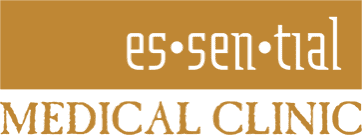
Nutrition
What is nutrition?
Nutrition is a branch of health care that works to understand the relationship between diet, health, and disease. It studies the nutrients in foods and their impact on your health and general well-being.
Nutrition also encourages disease prevention through healthy eating. By consuming a balanced diet that contains vegetables, fruits, whole-grains, and lean proteins, you can lower your risk of common health problems including high blood pressure, high cholesterol, and diabetes.
Are there different types of nutrients?
There are two main categories of nutrients:
Macronutrients
Macronutrients are nutrients that your body requires large quantities of. Common macronutrients include:
- Carbohydrates (sugars, fiber, and unprocessed starch)
- Proteins
- Fats
Water is also considered a macronutrient. The human body is about 60% water. Water keeps you hydrated, but it’s also responsible for a wide range of bodily functions, including digestion. Water also helps hydrate your joints and assists your body in absorbing nutrients.
2.Micronutrients
Micronutrients are essential vitamins and minerals that your body requires in small amounts. In some cases, they’re added to products, but micronutrients also exist naturally in fruits, vegetables, and protein.
Common examples of micronutrients include:
- Potassium
- Sodium
- Calcium
- Phosphorous
- Magnesium
- Zinc
- Manganese
- Copper
Iron is another micronutrient. If your body doesn’t get enough iron, you might develop anemia and other related health problems such as digestive issues and fatigue.
Why is good nutrition important?
Good nutrition is important because it provides your organs and tissues with the vitamins and minerals your body needs to function at full capacity. Without good nutrition, you’re more susceptible to disease, fatigue, infection, and poor performance.
In addition, four of the leading causes of death in the United States –– cancer, diabetes, stroke, and heart disease –– directly relate to poor nutrition. When you eat healthily, it’s possible to lower your risk of these and other ailments.

What happens during a nutrition consultation?
A nutrition consultation at Essential Medical Clinic begins with a thorough physical exam, a review of your medical history, and a discussion of your goals for treatment. Your provider might also recommend a series of laboratory tests, such as a complete blood count, to determine if you’re deficient in any areas. After gathering the necessary information, your provider develops a custom care plan that improves your health and nutritional intake.
If you’re deficient in certain areas, your provider can recommend medical-grade supplementation that restores your body to its natural balance.
To learn more about the benefits of good nutrition, make an appointment at Essential Medical Clinic today by calling the office nearest you or clicking the online scheduling tool.
